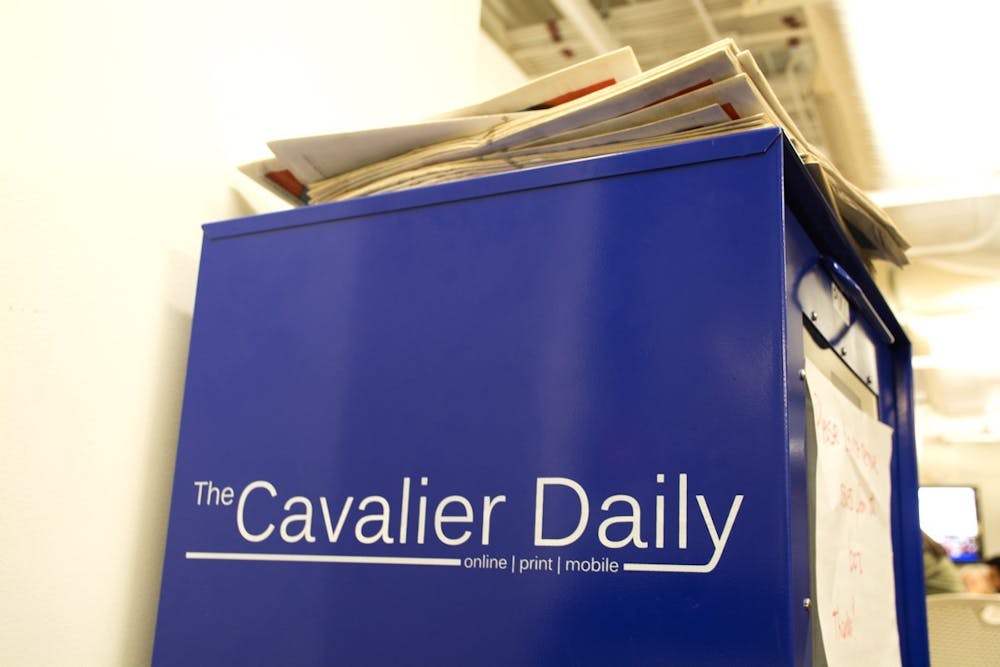University students, alumni and Charlottesville residents alike all turn to The Cavalier Daily to answer their questions about news both on and off Grounds. The paper — particularly its news section — provides extensive coverage on everything from student life and events to administrative policy. The turnaround time between official University-wide announcements and an article appearing from The Cavalier Daily is rapid and impressive, especially given the challenges of the constantly evolving COVID-19 crisis when new measures seem to be implemented every other day.
Though there is certainly value in speedy reporting, having it be the exclusive focus of the news section results in a significant amount of repetition and reiteration for readers, who have likely received email communications about much of this content. Further, too much reiteration goes back on the core tenet of the paper — independence from University administration. Long-form investigative journalism should take a more central role in the news section so as to cement the paper’s role as an objective but critical viewer of all facets of the University that impact student life.
Of the 104 articles published since the start of the Spring 2021 semester as of April 1, 45 directly repeat information that is readily available to the public. 16 articles are briefs that report on weekly cases of COVID-19 in the University community, based on the COVID-19 tracker tool. 14 reiterate information that is emailed out to the student population, such as updates on COVID-19 mitigation measures. 12 provide recaps of past events and three are briefs on inclement weather. Outside of recaps, the actions of student government and general student life — which has recently centered around adapting to virtual learning — make up the next biggest chunk of content, featuring 10 and 17 articles respectively. Only nine articles this semester provide unique content and even fewer provide investigative reporting, with the interview with President Jim Ryan and the investigation into fraternities and sororities breaking COVID-19 protocol during rush being standout examples.
Though a good amount of ground is covered in the section outside of these nine articles, the depth of the reporting is limited by the subject matter. This type of content does not require a great degree of research because it works backwards, starting with a fact, premise or event then attempting to cover potential impacts and preemptively answer questions. Taking the opposite journalistic approach and starting with a question would result in a more detailed view of the University and position the paper in a role that is far less reliant on official University announcements for content.
Increasing investigative journalism is certainly easier said than done. The form itself requires writers to develop a different set of skills when it comes to research, interviewing and writing.
“I think a lot of where we run into issues with trying to expand [investigative journalism] is that our staff is really young,” said section co-editor Eva Surovell.
Co-editor Maryann Xue agrees, describing that the current infrastructure of the section when it comes to investigative pieces includes a Google Doc where staff can submit ideas on potential topics to investigate, but that the document tends to be overlooked. “For now, a lot of the investigative journalism that we do comes from the senior staff,” she said.
Making longer investigative pieces a core part of The Cavalier Daily will not happen overnight, but there are tangible things that can be done now to get the ball rolling. First, outside of the news section, the “Submit a Tip” section of the website should be made more prominent. Currently, the link is in the drop-down menu under the “About” tab, making it harder for readers to submit potential leads. “Submit a Tip” should be featured on the homepage and promoted by social media accounts associated with The Cavalier Daily.
Within the section, some organizational changes could be implemented to shift some of the focus towards investigative reporting without placing a disproportionate amount of pressure on the senior staff. The application of the section should somehow incorporate investigative journalism, perhaps by requiring applicants to brainstorm ideas so that the section leadership can have greater insight into which new staffers would be interested in investigative journalism from the get-go. In a similar vein, establishing a mandatory pitch requirement for staffers would increase potential leads and put staffers in the mindset to take more initiative.
When the opportunity to investigate arises, senior associates and editors can pair with newer writers in a training relationship that could prove more connective and impactful than a general section-wide training session. This would be a sort of extension of the existing shadowing process for new staffers, during which senior writers pair with new writers for their first few articles. Furthermore, editors can and should make it clear that there is a pipeline to investigative journalism on the paper characterized by training benchmarks and amount of time spent on the staff, framing the pieces as a privilege that comes with practice.
In a University as large as this one, questions on everything from general culture to daily operations arise every day. People want to know the nitty-gritty. They want to know things about the effectiveness of the Ambassadors program, the connection between the administration and the lack of sanctions on Greek life or the treatment of student athletes by the coaching system — among countless other issues. The news section is in a unique position to take on these questions and should rise to the occasion of this responsibility.







